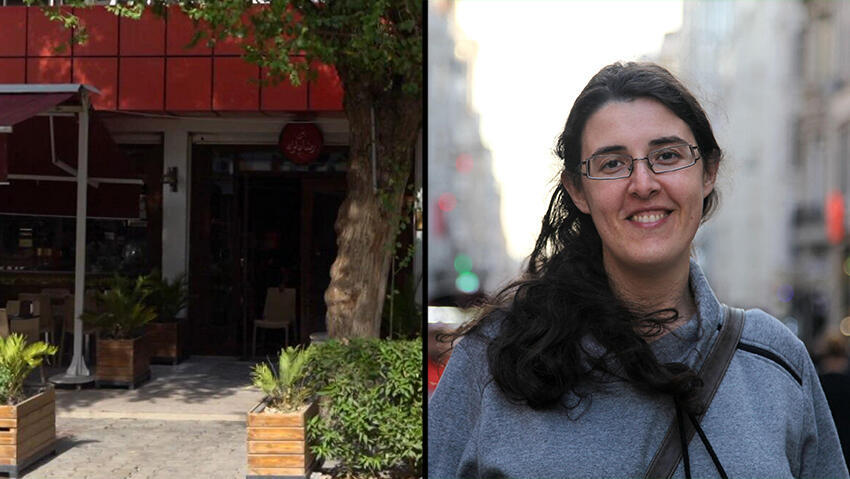On the six-month anniversary of the abduction of Israeli citizen Elizabeth Tsurkov in Iraq, two US senators expressed their deep concern for her safety in a letter to Secretary of State Antony Blinken, urging immediate action for her release.
Read more:
The two Democratic senators, Bob Menendez and Cory Booker, called upon the White House to leverage the strong and ongoing relationship with Iraq to address Tsurkov's abduction. They emphasized the importance of raising her case at every available opportunity and through various channels.
Elizabeth Tsurkov, moments before her abduction
Menendez and Booker represent the state of New Jersey, where Princeton University, which Tsurkov attended, is located. They noted that Tsurkov, 36, is in a uniquely vulnerable situation due to her dual Israeli and Russian citizenship.
In the letter, both senators, who serve on the powerful Senate Foreign Relations Committee, wrote that Tsurkov's dual Israeli-Russian citizenship places her in a "uniquely vulnerable position. Israel is constrained in its ability to press for Tsurkov’s release, as it has no diplomatic relations with Baghdad because Iraq does not recognize Israel. And Russia has done nothing to advocate for Tsurkov’s release as she has openly criticized the Russian invasion of Ukraine." They demanded a progress report to their committee on efforts toward her release in 30 days.
Tsurkov was abducted outside a Baghdad cafe by Kata’ib Hezbollah, a powerful Shia militia in Iraq financed and armed by Iran’s Revolutionary Guard Corps.
1 View gallery


Elizabeth Tsurkov and the cafe was she abducted from
(Photo: AFP PHOTO / Ahmad Mohamad)
The Iranian-proxy militia refutes allegations that its members were responsible for Tsurkov's abduction. This particular militia has a history of carrying out attacks resulting in the deaths of American soldiers in Iraq, leading to its designation as a terrorist organization by the White House. Despite this designation and the relationship between Washington and Baghdad, the militia continues to receive funding from the Iraqi government and is believed to wield significant influence within the country's chain of command.
Numerous unresolved questions remain, and high-ranking officials in Jerusalem have emphasized that the process of securing Tsurkov's release may extend over several months or even years. In July, the Iraqi government's spokesperson confirmed that an investigation into the incident was underway. However, the spokesperson said, "due to the significant nature and intricacies of the case, no official statement will be issued until the investigation is concluded and definitive findings are reached." Since then, no further updates or announcements have been provided on the matter.
Tsurkov, who is fluent in Arabic, had visited Iraq on 10 occasions as part of her academic research. On her 10th visit, which started on March 19, she communicated with the research institute in Washington where she worked under a fellowship. During this conversation, she expressed her intention to discontinue her fieldwork, stating, "I've had enough, I'm coming back." One week later, on March 26, she was abducted.
This week, a prisoner exchange agreement was executed between Iran and the United States, which resulted in the release of five American prisoners in exchange for five Iranians held in prison in the U.S. Additionally, Tehran received previously frozen funds, totaling $6 billion, which had been held for several years. Tsurkov, however, was not included in this agreement.
Emma Tsurkov, Elizabeth's sister and a Stanford University researcher, wrote on X (formerly Twitter): "My sister was kidnapped in Baghdad while conducting research approved and funded by Princeton. Her kidnappers benefit from U.S. military aid. The U.S. should demand that the Iraqi authorities free her."
A U.S. State Department spokesperson said: "We won’t comment on intended actions by members of Congress. As we have previously stated, we condemn her abduction and are closely tracking this case. For privacy and security reasons, we have nothing further at this time."




